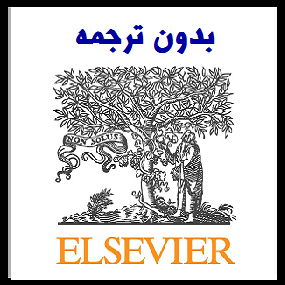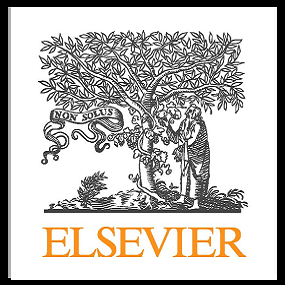مقاله انگلیسی جهت گیری کارآفرینانه SME های خانوادگی (2019 الزویر)


| عنوان فارسی مقاله | بین المللی سازی و جهت گیری کارآفرینانه SME های خانوادگی: تأثیر شخصیت خانوادگی |
| عنوان انگلیسی مقاله | Internationalization and entrepreneurial orientation of family SMEs: The influence of the family character |
| نمونه مقاله انگلیسی | Introduction
Entrepreneurial orientation (EO), the firm’s disposition to entrepreneurship, is a key element in businesses’ internationalization process (Jantunen, Puumalainen, Saarenketo, & Kyläheiko, 2005; Javalgi & Todd, 2011; Liu, Li, & Xue, 2011; Ripollés-Meliá, Menguzzato-Boulard, & Sánchez-Peinado, 2007). However, few studies have analyzed factors affecting the relationship between EO and international development in small and medium-sized enterprises (SMEs), and even fewer have analyzed family firms (Calabrò, Campopiano, Basco, & Pukkal, 2017; Hernández-Perlines & Mancebo-Lozano, 2016; Hernández-Perlines, Moreno-García, & Yañez-Araque, 2016), although such firms represent the most common form of business organization in the world (Hiebl, Quinn, Craig, & Moores, 2018). The literature has acknowledged that family firms differ in attitudes and behaviors when internationalizing (Graves & Thomas, 2006) and in internationalization strategies (e.g., Fernández & Nieto, 2006; Boellis, Mariotti, Minichilli, & Piscitello, 2016). Family firms may behave differently depending on the extent of family involvement in the business (Chrisman, Chua, & Steier, 2005; Kellermanns, Eddleston, Sarathy, & Murphy, 2012; Naldi, Nordqvist, Sjöberg, & Wiklund, 2007). Furthermore, family involvement is a variable used commonly to identify the family’s power to shape a firm’s goals, strategies, and behaviors (Deephouse & Jaskiewicz, 2013; Miller, Le Breton-Miller, & Lester, 2013). Decision makers’ characteristics and attitudes are important determinants of family SMEs’ internationalization (Arregle, Naldi, Nordqvist, & Hitt, 2012; Calabrò, Torchia, Pukkal, & Mussolino, 2013; Cerrato & Piva, 2012; Claver, Rienda, & Quer, 2008). However, the relevance of individual managerial levels of knowledge and experience remains largely unexplored in the international business literature (Nielsen, 2010). In family SMEs, there is often an overlap between ownership, the board of directors, and the top management team (TMT), with the same family members involved at all levels (Segaro, 2012). TMT members in family SMEs participate directly in the design and day-to-day implementation of firm strategy (Lubatkin, Simsek, Ling, & Veiga, 2006; Sánchez-Marín & Baixauli-Soler, 2015), and they carry out the entrepreneurship process (Sciascia, Mazzola, & Chirico, 2013). Moreover, it is common for SMEs to have family members in TMT positions (Speckbacher & Wentges, 2012) that can spread the family’s ideas and behaviors, directly influencing strategic choices and decisions. Therefore, the family’s involvement in the firm offers a unique environment in which to analyze whether and to what extent a firm’s family character affects the firm’s internationalization (Fernández-Olmos, Gargallo-Castel, & Giner-Bagües, 2016). The family business literature has overlooked the importance of family involvement in TMT positions despite its relevance (Minichilli, Corbetta, & MacMillan, 2010). Following the upper echelon theory (Carpenter, Geletkanycz, & Sanders, 2004; Hambrick & Mason, 1984; Hambrick, 2007), top managers’ strategic choices are influenced by managers’ cognitive base and values, which influence the decisionmaking process, shaping organizational outcomes. Organizations are reflections of their TMTs, and firm-level decisions, including internationalization, depend substantially on team background, experience, and values (Hiebl, 2014; Tihanyi, Ellstrand, Daily, & Dalton, 2000). Thus, managers should possess knowledge that allows them to analyze and process information efficiently in the complex and uncertain internationalization process (Nielsen & Nielsen, 2011; Ramón-Llorens, García-Meca, & Duréndez, 2017). Previous research has recognized TMT as an important decision-making group in organizations (SánchezMarín & Baixauli-Soler, 2015; Vandekerkhof, Steijvers, Hendriks, & Voordeckers, 2015) and has focused on whether demographic diversity in managerial backgrounds is advantageous for firms, but the results have been inconsistent (Cannella, Park, & Lee, 2008; Rivas, 2012). |
| سال انتشار | 2019 |
| ناشر | الزویر |
| مجله | بررسی کسب و کار بین المللی – International Business Review |
| کلمات کلیدی | بین المللی سازی، جهت گیری کارآفرینی، شرکت های خانوادگی، دخالت خانواده، دخالت نسل، تیم مدیریت برتر |
| کلمات کلیدی انگلیسی |
internationalization, Entrepreneurial orientation, Family firms, Family involvement, Generational involvement, Top management team |
| صفحات مقاله انگلیسی | 12 |
| مناسب برای رشته | مدیریت |
| مناسب برای گرایش | مدیریت کسب و کار، کارآفرینی |
| توضحیات | این مقاله انگلیسی جدید بوده و تا کنون ترجمه نشده است. جهت ثبت سفارش ترجمه از لینکهای زیر استفاده نمایید. |
| دانلود مقاله انگلیسی | ○ دانلود رایگان مقاله انگلیسی با فرمت pdf (کلیک کنید) |
| سفارش ترجمه فارسی | ○ سفارش انجام ترجمه و تایپ این مقاله (کلیک کنید) |
| سایر مقالات این رشته | ○ مشاهده سایر مقالات رشته مدیریت (کلیک کنید) |


